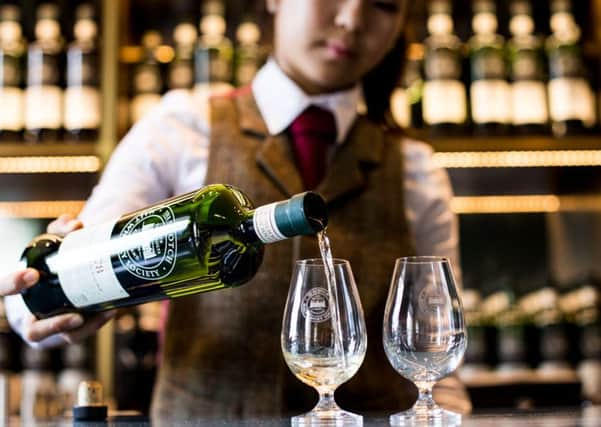Method to age whisky in just hours was axed over Scotch industry fears


A trial to transform the process of ageing whisky was considered by government scientists in the 1950s.
According to documents released to the public in the National Archives, a trial batch of whisky in 1951 produced promising results.
Advertisement
Hide AdAdvertisement
Hide AdBut a larger-scale experiment was unsuccessful due to “significant evaporation and loss of proof” and the process was ultimately scrapped over fears that foreign competitors would copy the process and put Scottish business at risk.
Early experiments revealed that the new style of whisky, which was created by circulating immature spirit through active chemicals, could produce an improved taste to the product.
The trial has remained secret for around 70 years, before details were released to the public.
Communication from the Board of Trade in 1952, said: “The minister recently forwarded to us a letter he had received from a friend, Mr AJ Menzies, managing director of Fettercairn Distilleries Limited, Kincardineshire, about a process which he says he has invented for accelerating the maturing process of whisky.”
It added: “Mr Menzies claims his process reduces the maturing time from about five to ten years to a few hours.
“If the process is successful, even if only partially so, it will obviously have a considerable effect on the Scotch whisky trade.”
Following the successful trial, government scientists said: “The analysis shows the spirit to have the character of a pot still malt whisky, having a much higher alcohol content, about six times, than well known proprietary blends.
“The general opinion here is that there has been some improvement in the taste.”
Advertisement
Hide AdAdvertisement
Hide AdBut the new method raised fears the Scotch whisky industry could be “destroyed”.
A letter from a Board of Trade official said: “If the invention were to be taken up abroad, foreign distillers might possibly be able to destroy our exports by producing something nearly equivalent.
“These are gloomy prospects.”
